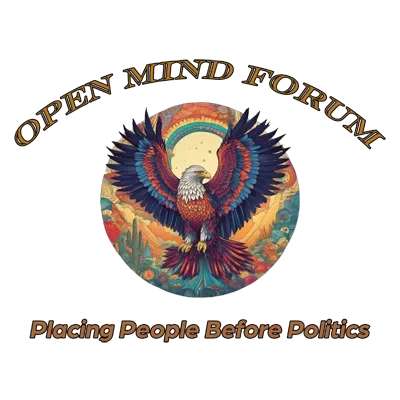How Identity and Reactionary Politics Fuel America’s Crisis
Introduction to The Politics of Mistrust
The politics of mistrust in the United States has morphed into a pervasive crisis, alienating voters across the spectrum. Both major political parties are trapped in echo chambers that prioritize ideological purity over the needs of the American people. The Democratic Party’s commitment to identity politics and politically correct language alienates swathes of the electorate who feel left behind or even dismissed by these cultural shifts. Conversely, the Republican Party’s nativist, reactionary stance often feels intentionally exclusionary, leaving Americans without a palatable choice.
The Politics of Mistrust in Language and Identity
The Democratic Party’s emphasis on identity politics and language regulation has often backfired. A focus on non-offensive, politically correct language aims to be inclusive, yet it frequently veers into impractical territory. Terms like “weight-challenged” in place of “overweight” and the push to normalize gender-neutral pronouns, even when they defy traditional language structures, create confusion and alienate potential supporters. Critics argue that

these shifts seem forced, causing people to question if the party values cultural “correctness” over practicality. Studies show that when political language becomes too ideologically charged, it risks excluding those outside the “in-group” and creating a chasm between the party and the people Politics of Mistrust and Foreign Policy Missteps
In foreign policy, the Democrats’ stance on issues such as the Gaza-Israel conflict demonstrates their struggle to balance ideology with complex international realities. Following the October 7, 2023, Hamas attack on Israeli civilians, the party’s lukewarm condemnation of Israel’s retaliation appeared out of touch with Israel’s need for self-defense.
Commentators argue that language calling Israeli leaders “genocidal” over self-defense efforts fails to recognize the existential threats Israel faces . While intending to align with human rights principles, they come across as dismissive of longstanding threats, sowing further mistrust among Jewish American voters and others who view Israel as a key ally. What they do not understand, it seems to me, is just how offensive their faux human rights stance is to those of us who remember the Shoah (Holocaust is a moniker that many Jews find offensive) and the German genocide of 6,000,000 innocent Jewish souls with the intent to eliminate Judaism from the planet with military precision.
The Politics of Mistrust and Republican Extremism
The Republican Party fares no better in addressing the nation’s needs. The party’s increasingly nativist policies, coupled with its leniency toward leaders with criminal convictions, undermine the ideals of the American republic. The GOP’s support for former President Donald Trump, even as he faces multiple criminal indictments, symbolizes the erosion of accountability within the party. Rather than addressing pressing national issues, the party stirs resentment against immigrants, women, and marginalized communities. In the long term, this fuels a politics of mistrust by positioning certain Americans as threats to “traditional” values. This shift has become a major deterrent for moderate voters who may align with some of the party’s economic policies but are repelled by its divisive cultural rhetoric .
The Neo-Liberalism and the Politics of Mistrust
The current political climate reflects a deeper ideological alignment between both parties—Neo-liberalism. By prioritizing global corporate interests and deregulation, Neo-liberal policies leave middle-class Americans behind. Both Democrats and Republicans, despite their cultural and social disagreements, continue to support an economic model that benefits the wealthy while sidelining the working class. This shared commitment to Neo-liberalism reveals how the politics of mistrust stems not from differing values but from similar loyalties to power structures that disregard the electorate .
Toward a Future Deepening Politics of Mistrust
If the United States is to escape this spiral, both parties must recognize the damage caused by identity-driven and reactionary policies. They must begin to seek common ground and focus on policies that prioritize the needs of the American people over ideological battles. A democratic republic depends on compromise, inclusion, and genuine

representation. The politics of mistrust, whether fueled by language control or nativist extremism, erodes these principles. Without meaningful reform, both parties risk further alienating voters, potentially leading the nation into deeper division and stagnation.
What seems clear to me is that the flaws of the American Republic have their roots in the infusion of Neo-Liberalism into the platforms of both major parties. The identity politics the Democrats seem so proud of is as offensive to conservative voters as the authoritarian, religious based policies of the Republicans.
Unless, or perhaps, until both parties give up their ideologies, their dogmatic stances there will not be significant change in the divisiveness of American politics. I am suggesting that seeking common ground through negotiation and compromise is the stuff that unites people rather than separating them in ways that spark hate and division by holding fast to policies that demand loyalty to party or that demand a fear of the other is the burden for both parties to solve or to govern over the demise of the American Republic.
Sources Cited
- Lakoff, G. (2004). Don’t Think of an Elephant! University of Chicago Press.
- Goldberg, J. (2023, October 10). “Why Israel Needs to Defend Itself.” Foreign Policy.
- Mounk, Y. (2018). The People vs. Democracy: Why Our Freedom Is in Danger and How to Save It. Harvard University Press.
- Harvey, D. (2005). A Brief History of Neoliberalism. Oxford University Press.
Suggestions for Further Reading
- Packer, G. (2013). The Unwinding: An Inner History of the New America. Explores the economic shifts that have eroded the middle class.
- Hochschild, A. (2016). Strangers in Their Own Land: Anger and Mourning on the American Right. Examines why voters feel alienated by progressive politics.
- Skocpol, T., & Williamson, V. (2011). The Tea Party and the Remaking of Republican Conservatism. Analyzes the rise of reactionary conservatism within the GOP.
- Frum, D. (2020). Trumpocalypse: Restoring American Democracy. Argues for reformation within the Republican Party.
- Klein, N. (2007). The Shock Doctrine: The Rise of Disaster Capitalism. Details how crises are exploited to implement Neo-liberal policies.
- Fukuyama, F. (2018). Identity: The Demand for Dignity and the Politics of Resentment. Discusses the rise of identity politics globally.
- Applebaum, A. (2020). Twilight of Democracy: The Seductive Lure of Authoritarianism. Critiques the rise of authoritarian sentiment in the West.
- Lilla, M. (2017). The Once and Future Liberal: After Identity Politics. Analyzes the impact of identity politics on liberalism.
- Haidt, J. (2012). The Righteous Mind: Why Good People Are Divided by Politics and Religion. Explores moral divides that deepen political mistrust.
Disclaimer: The images and videos in this post are AI-generated creations, intended purely for illustrative and conceptual purposes. They are not real-life representations and should not be interpreted as such. Their sole purpose is to offer a visual means of exploring the topics discussed in this post.




